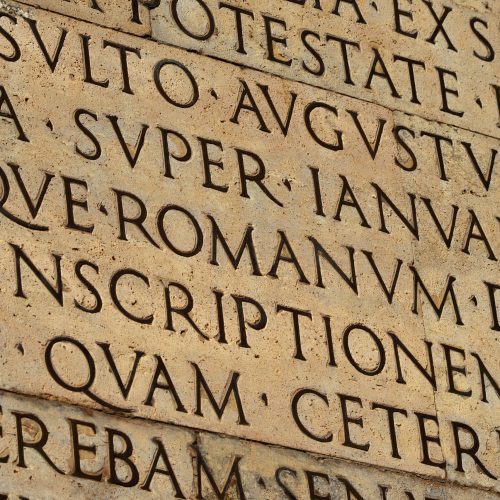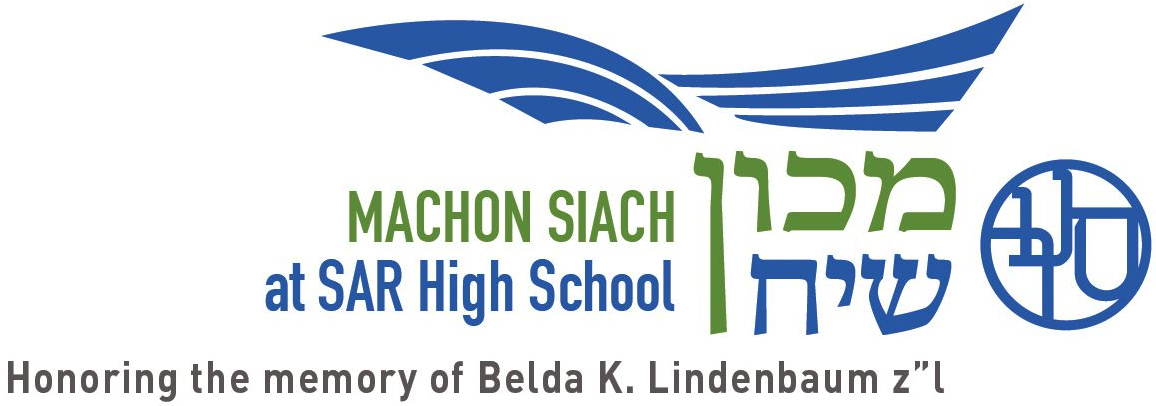
Why Should Day Schools Teach Latin?
If you were to ask some generative AI software why anyone should study Latin, it would spit out something along the lines of, “It’s good for your English vocabulary” or “You’ll do better on your SAT’s” or even “It’s the foundation of so many other languages.” To be fair, these are all the reasons my old high school teachers back in the UK provided when parents asked them the classic question: why study a dead language? Now, I’m going to answer this question in a slightly reversed order, saving the most important reason for last. But for starters, let’s talk about dead languages.
Before we get into the various shortcomings of AI and what this response is lacking, I want to say something that might sound cynical or controversial: every school subject is arguably a dead language. What do I mean by this? Well, a dead language isn’t used any more and doesn’t provide content that is relevant to the rest of your life. But couldn’t that be true of every subject on the curriculum, at least to some extent? Learning Pythagoras’ theorem or To Kill a Mockingbird or the water cycle or how the Romans conquered the known world are all classic benchmarks of an American education, but, depending on who you are and what you’ll do, could you need to know or will you use those in the rest of your life? No, they’re all “dead languages” too.
So, what are we trying to achieve in school? What’s the point of learning anything? A colleague once told me that content is merely a vehicle for the skills we want our students to develop. Every subject can help students develop skills they will need for life: whether it’s better memorization techniques, how to present well, how certain systems that exist today came about, or an understanding of why the world is the way that it is. The content is a way to make sure that these skills or deeper understandings are cultivated, but it is simply a means to an end. Therefore, if we accept that every subject has some inherent academic value, it doesn’t matter whether they are “living” or “dead;” what matters is how they enhance students’ transferable skills.
This brings me to the value of Latin on a skill-based level. It is rare to find a subject that enhances such a variety of skills: we develop the ability to think logically because of how rigidly structured the Latin language is, we expand students’ vocabulary in English by learning etymology, we broaden their geographical knowledge and map-reading skills by examining the expansion of the Roman Empire, we hone their attention to detail by emphasizing the importance of word endings to indicate verb tenses or noun functions, we develop their artistic skills by asking them to make theater masks or gladiatorial posters, we develop their creative writing skills by asking to write about daily life in the Roman world from a variety of perspectives, and eventually we develop their ability to do literary analysis when we read original Latin literature. Latin is history, geography, language arts, biblical text studies, art, and foreign language studies all rolled into one.
However, none of this is the most important reason to study Latin. The truth is that students should take Latin for the same reason that they should take any subject: because it’s fun. If they enjoy what they’re learning, and we accept that whatever they’re learning is developing their skills in a relevant way for the long term, they’ll get more out of their studies. Here I believe Latin has more to offer than any other subject. Yes, I’m biased, but I’ve been doing this for long enough and have seen enough people fall in love with this subject to know that it has something special. The way we do Latin here at SAR is designed to immerse students in the rich world of the Romans. We use a textbook developed in the UK by middle and high school teachers, for middle and high school teachers. This is not the antiquated method of teaching Latin by making kids memorize and regurgitate grammar tables with no context. We read stories of real Romans, living in Pompeii in the first century CE before the eruption of Mount Vesuvius. We expand our knowledge of grammar and vocabulary through these stories, but we enhance our knowledge of the Roman world through videos and creative assignments too. Our course follows a banker named Caecilius; we learn about his family, his house, his workplace, what he does for leisure (the theater, the gladiatorial shows, the baths) and how involved he is in local politics before Mt Vesuvius blows up. Then the students have to wait to see who will survive and who won’t return for part two of the course…
This brings me to how well Latin fits in here at SAR. In this school, we always say “It’s not what you learn, it’s who you become.” This is so true in Latin: yes, the content is fun, and it should be in order to develop the skills more fully. But the content is not what matters most; what matters most is how studying Latin will impact them in the long term. Certainly, the raw knowledge it furnishes is valuable to some. Some people love nothing more than being able to explain the etymology of certain words. Some love to talk about how the Romans shaped the Western world in its culture, literature, or architecture. Some love reading the great works of orators like Cicero, who is still studied as a key foundational character in the world of law, or the epic poetry of Virgil, or the historical works of Julius Caesar. Some love learning the political or military history of Rome, with all its innovations and influences on governmental systems today, both in the US and worldwide. Some love nothing more than the satisfaction of solving the puzzle of what a sentence or story really means. But they all have one thing in common: Latin kindled a passion in them that is hard to find. This niche world, that is so accessible to so many if they try their hand at it, presents so many opportunities to fall in love with learning. This is the skill that every teacher of every subject is trying to develop in their students, and this is what we at SAR want people to become: lifelong learners who have developed a passion for learning.



